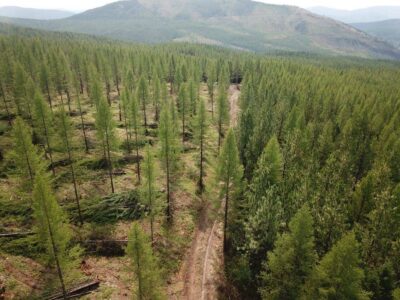State regulation of environmental harms on federal lands
California Supreme Court case indicates substantial authority for states to act
Sean has already reported on the recent Rinehart decision by the California Supreme Court, in which the Court concluded that a state law imposing a temporary moratorium on the use of suction dredge equipment in California waterways was not preempted by federal mining law. Here, I just want to add to Sean’s excellent summary by identifying some key factors for answering future questions about whether state environmental regulations for activities on federal lands are preempted by federal law, and whether the state’s new updated suction dredge rules are likely to be upheld. I also want to flag an upcoming Ninth Circuit case that might be important on these questions as well.
First, the California Supreme Court was considering whether a temporary moratorium on a specific mining technique (suction dredge mining) would be preempted by federal law. An important issue is what other kinds of state regulations might be upheld. There isn’t a whole of caselaw directly on point, but I think it is fair to say that a statute is less likely to be found to be preempted by federal law to the extent it:
- Regulates only particular methods of doing an activity (e.g., suction dredge mining) rather than banning the activity (e.g., all mining) entirely
- Sets up a permitting system or requires compliance with environmental standards rather than banning an activity entirely
- Is justified based on the specific environmental harms that the regulation seeks to prevent
- Is focused on activities in specific geographic areas
- Is temporary rather than permanent
The state law at issue in Rinehart regulated only a particular method of mining, was justified based on specific environmental harms that suction dredging causes to fish and water quality, was limited to waterways in the state, and was temporary. The Rinehart court never explicitly stated that these factors were essential to its reasoning – it simply emphasized that it was only considering a temporary prohibition on a particular mining technique – but the narrowness of the state regulation at issue surely made the case easier for the court.
Looking ahead, the moratorium violated by Mr. Rinehart has since been superseded by new laws empowering state agencies to regulate suction dredge mining, enacted by the Legislature as SB 637 in 2015. The law sets up a permitting system for suction dredging, and permits can only be issued if the Department of Fish and Wildlife concludes that suction dredging will “not cause any significant effects to fish and wildlife.” Cal. Fish & Game Code § 5653(c). Permittees also must comply with state and federal water quality regulations. Id. at § 5653(b)(1). The Department of Fish and Wildlife may close areas to suction dredging, or set geographically-based restrictions on the use of suction dredge equipment. Id. at § 5653(c). The state or regional water boards may issue regulations on the use of suction dredge equipment to protect water quality. Id. at § 13172.5(b).
I think it is fairly clear that the new laws, and regulations and permits enacted pursuant to them, will be upheld as not preempted if they are challenged in California state court. The new regulatory and permitting system is permanent – but it is otherwise focused and limited. First, the law does not flatly prohibit all suction dredge mining in the state, let alone all mining. In fact, it sets up a permit system that can allow suction dredge mining to occur where the mining will not impair environmental quality. The regulations are also justified upon the prevention of specific environmental harms, and the issuance of permits is based on findings about potential environmental harm. The area closure provisions in the statute are also likely to be not preempted, as they are limited in geographic scope.
Note that my prediction above was limited to California state courts, for whom Rinehart is controlling precedent. What about federal courts?
The Ninth Circuit is currently hearing an appeal of a lawsuit by Oregon suction dredge miners challenging Oregon’s own moratorium on suction dredge mining. The Oregon district court rejected the challenge. We’ll see what happens on appeal. If the Ninth Circuit also concludes that there is no preemption, then that more or less ends many of the questions about preemption of California environmental regulations – or similar regulations in other states in the Ninth Circuit – on federal lands (except if the Supreme Court grants cert). If the Ninth Circuit reaches a different conclusion, things could get interesting…








Reader Comments